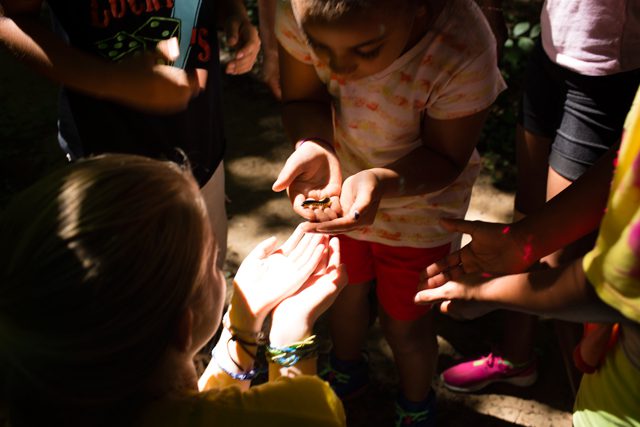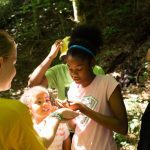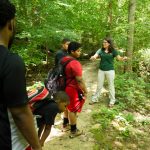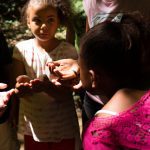Wake County creates a partnership to open up environmental education opportunities to day campers.
Well aware that an increasing number of kids throughout communities in the Carolinas are finding themselves at home with no adult care or supervision, The Wake County, N.C., Salvation Army Boys & Girls Club and Charted Community Center began to wonder, how might they step up day camp programs and services promoting youth development?
Already offering educational opportunities in everything from spiritual development to technology-enhanced learning, officials decided to launch an environmental education initiative. As part of a well-rounded sports, fitness and recreation program, learning about the natural world can make a strong impact on young minds, helping to teach positive uses of leisure time, skills for stress management and an appreciation for the environment, along with socials skills.
“Here, they acquire the necessary tools and attributes to be healthy, self-sufficient and productive citizens,” said Sarah Smith-Ruiz, Program Director at The Salvation Army Corps & Community Center in Wake County.
It was a noble goal hampered by one major hurdle—the center found itself without the funding to either pay for a qualified instructor or cover the entrance fees that would allow for real world learning.
That’s when Smith-Ruiz spotted a unique opportunity, discovering how local nonprofit the Triangle Land Conservancy (TLC) works to connect community members to the natural beauty of the Triangle Region—as the area between Raleigh, Durham and Chapel Hill are known. She reached out to Barbara Goldentyer, an AmeriCorps member and TLC’s community outreach and education associate, and the two began to brainstorm how the organizations could team up to design an environmental education curriculum that would best serve underserved youth—and thereby pay dividends for the whole community.
“The more families are aware [of the environmental issues], the more they can give back and spread the word,” said Goldentyer.
Smith-Ruiz and Goldentyer quickly settled on their number one rule for the program—leave your bright new tennis shoes at home. Part of the initiative’s appeal would be its very hands-on approach, and to that end, for their first collaboration, TLC put together three, 2-hour programs for Army day campers at Raleigh’s nearby Swift Creek Bluffs Preserve. The first half of the program consisted of a guided nature walk, followed by dips in tidal pools as well as activities that sent campers scurrying around the nature preserve, overturning logs and using small nets to identify the animals that help create the local ecosystem and to learn how protecting their fragile environment helps those animals thrive. But just as impressive as the conservancy’s work stewarding our natural resources was its approach to working with kids, Smith-Ruiz said.
“TLC is able to accommodate children with special needs, physical disabilities, hyperactivity and other issues that may require additional assistance,” Smith-Ruiz said. “I felt really comfortable having the campers and staff participate in their programs.”
That feeling was shared by all.
“I liked how the preserve was set up,” said 12-year-old Jalen Morring. “At first, I thought maybe [there were] a lot of dangerous things in the woods, but then later on I saw a few animals that was harmless and that made me feel better about the woods and nature.”
With the advent of these excursions, it’s not just campers who are getting their first immersion in the great outdoors, Smith-Ruiz says. In many cases staffers also got a brand new opportunity to get their hands dirty. And the success of the venture means that this partnership will by no means be a one-off. In fact, “we are already looking forward to devising additional programming throughout the fall and upcoming year,” Smith-Ruiz said.
That makes this burgeoning relationship with TLC just the latest addition to a long list of exceptional partnerships in which the Wake County Army has teamed up to expand its programming through local organizations, nonprofits, social groups and volunteers, including the Wake County 4-H, Alice Aycock Poe Center for Health Education and Girls on the Run.















